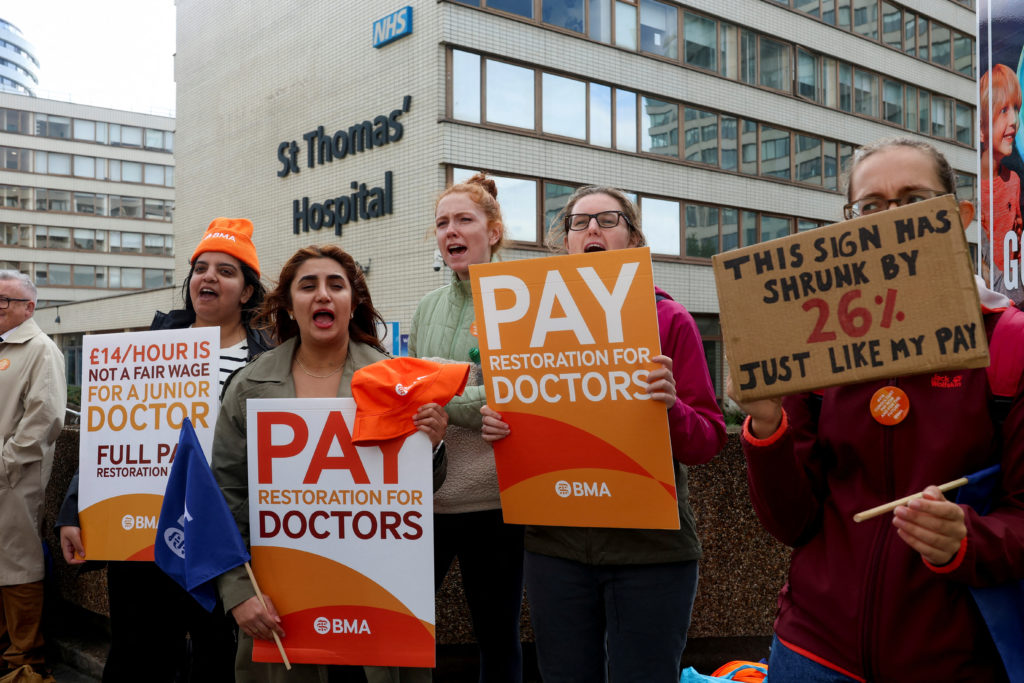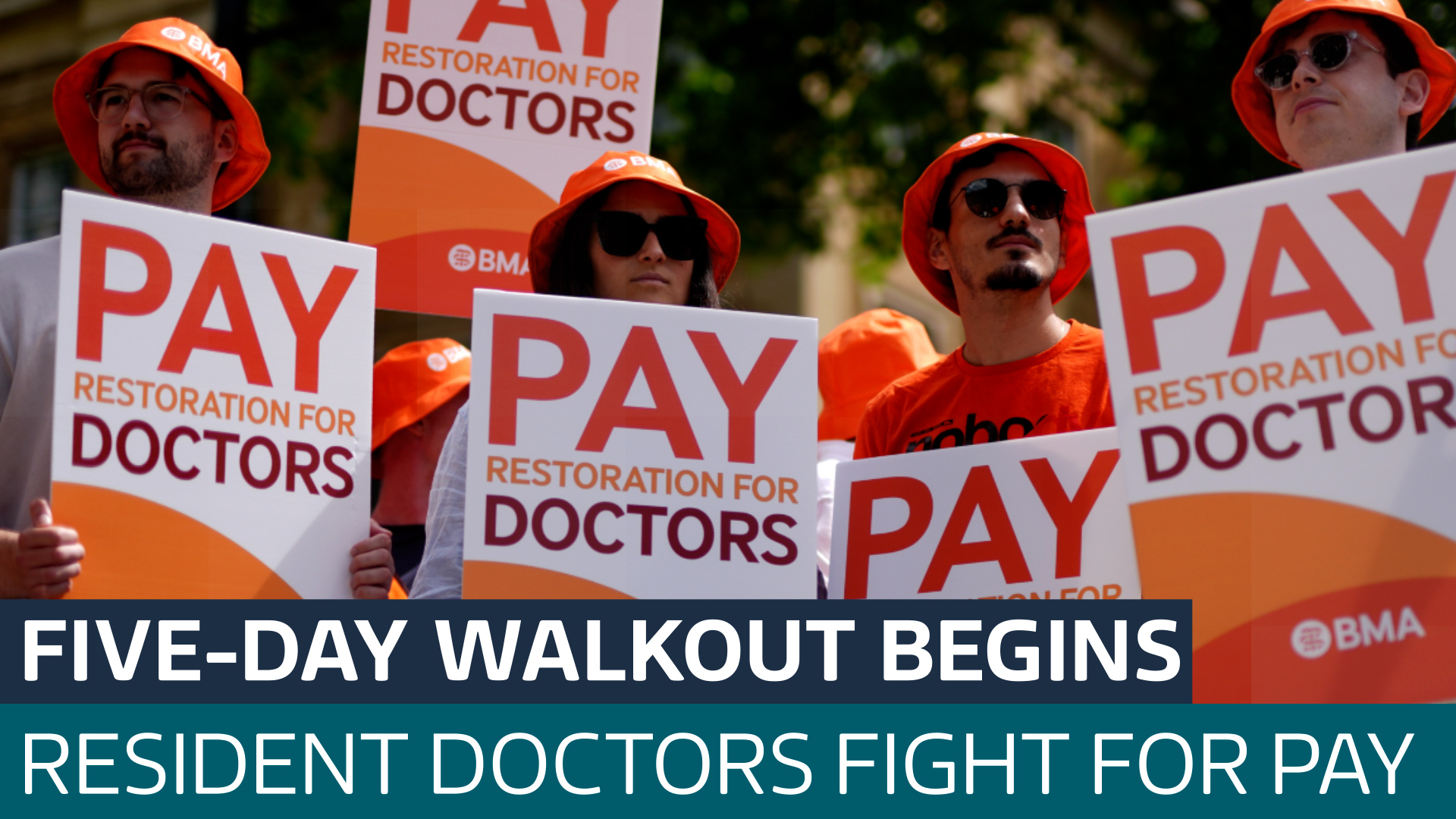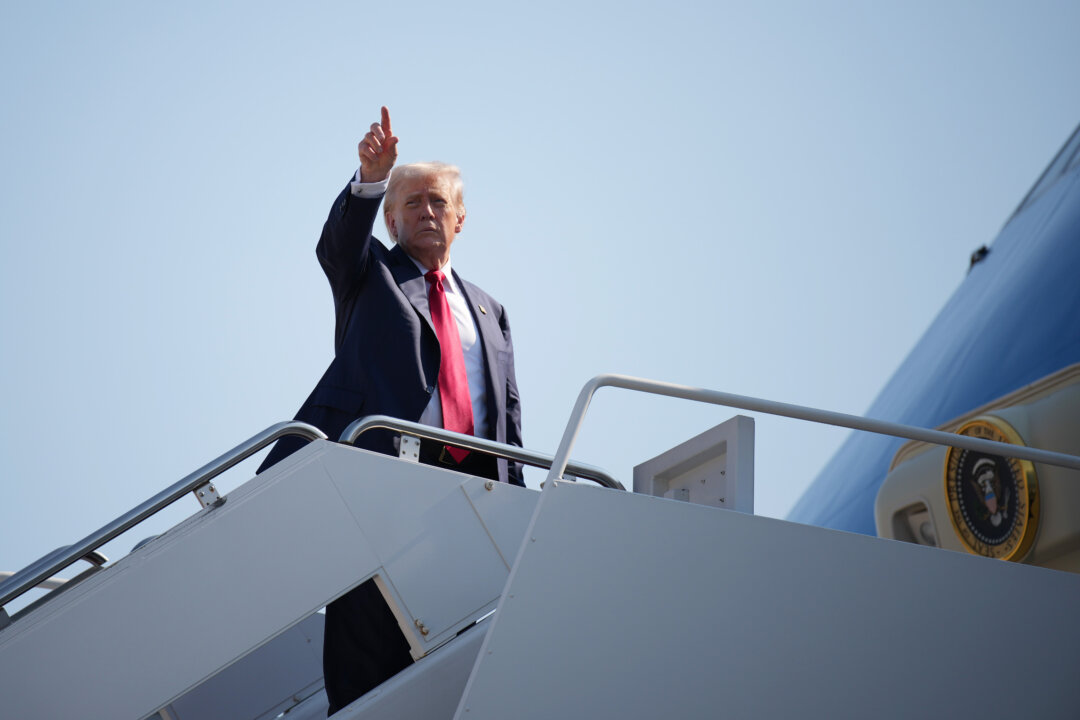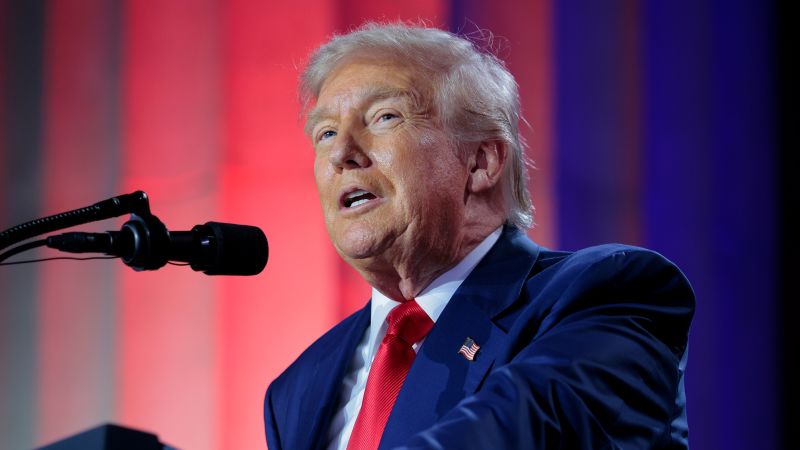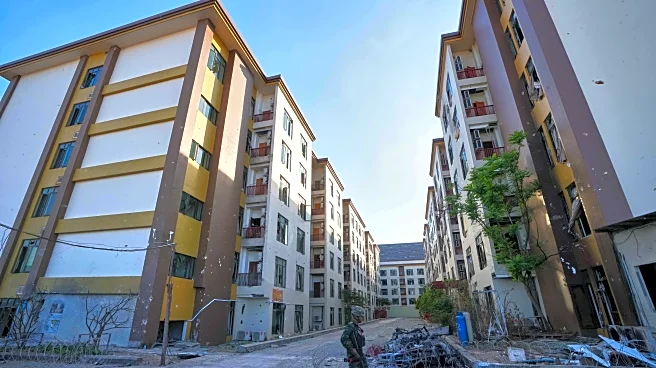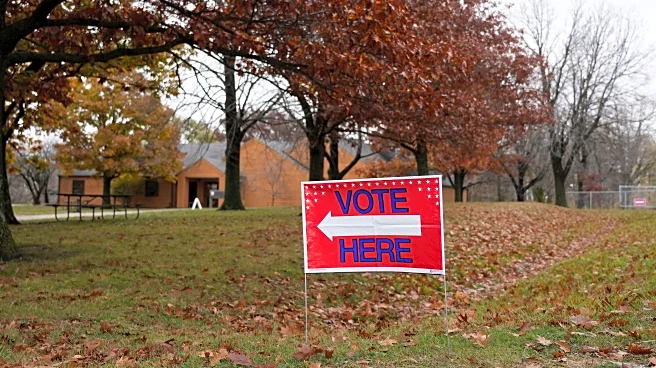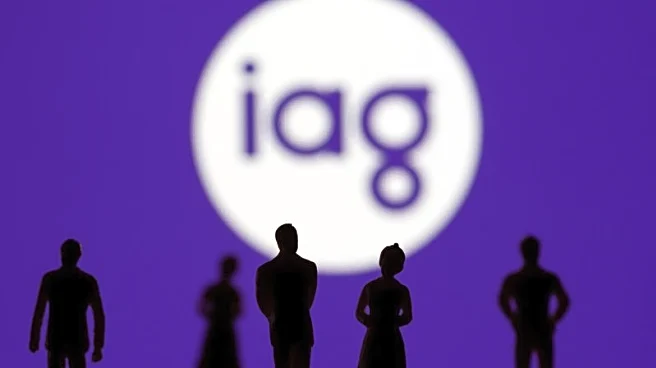A wave of discontent has surged through England's healthcare system as up to 50,000 resident doctors embark on a five-day strike, demanding better pay and acknowledgment of their challenging working conditions.
Did You Know
The world's oldest person on record lived to be 122 years old.
?
AD
This industrial action, organized by the British Medical Association (BMA), comes on the heels of collapsed negotiations with the government, leaving doctors frustrated and feeling undervalued. The stakes are high, with officials warning that the strike will significantly disrupt patient care across the National Health Service (NHS), further stressing an already beleaguered system.
As the strike commences, hospitals are bracing for chaos, preparing contingency plans to manage the fallout as essential services face critical shortages of medical personnel. Directly addressing the disruption, Labour Party leader Keir Starmer has stepped into the fray, urging both sides to find common ground and avoid what he calls a damaging impasse that could jeopardize the welfare of countless patients. The scene is set for a tense few days ahead as medical professionals take to picket lines, advocating not only for their rights but also for the patients whose care hangs in the balance.
The public reaction to the strike has been mixed, with many supporting the doctors' pursuit of fair compensation while others express concern about their immediate impact on healthcare delivery. This unrest underscores a growing trend within the NHS and beyond, highlighting a broader call for reform in labor conditions and funding. As the five-day strike unfolds, it presents a critical moment for both the NHS and the government, potentially reshaping the future of healthcare in England amid increasing pressure from both healthcare professionals and a concerned public.
Q&A (Auto-generated by AI)
What are the key demands of the striking doctors?
The striking doctors, primarily resident medics in England, are demanding a significant pay rise of 29% to address issues of poor pay and challenging working conditions. They argue that their compensation has not kept pace with inflation and the rising cost of living, which has affected their ability to provide quality patient care. The doctors believe that fair pay is essential to attract and retain talent in the NHS, which has faced staffing shortages.
How does this strike impact patient care?
The five-day strike by resident doctors is expected to disrupt patient care significantly across England's NHS. With thousands of doctors walking off the job, hospitals are likely to face cancellations of non-urgent procedures and delays in emergency care. The government has warned that this action could lead to increased waiting times and a backlog of cases, potentially compromising patient safety and health outcomes during the strike period.
What led to the breakdown of pay negotiations?
The breakdown of pay negotiations between the British Medical Association (BMA) and the government occurred after prolonged discussions failed to yield a satisfactory agreement. The BMA accused the government of not taking their demands seriously, while the government maintained that the proposed pay increases were not feasible within current budget constraints. The lack of compromise on both sides ultimately led to the decision to strike.
What historical context surrounds doctors' strikes?
Doctors' strikes in the UK have a history dating back several decades, often linked to disputes over pay and working conditions. Notably, the junior doctors' strike in 2016 marked a significant moment in NHS history, highlighting issues of burnout and dissatisfaction among medical staff. These strikes reflect broader frustrations within the healthcare system, including funding challenges and the impact of austerity measures on public health services.
How do pay rates for doctors compare globally?
Pay rates for doctors vary significantly across the globe. In many developed countries, such as the US and Canada, doctors typically earn higher salaries compared to their UK counterparts. For instance, while UK doctors have faced stagnating wages, US physicians often report salaries that can exceed $200,000 annually. This disparity can influence healthcare recruitment and retention, with many doctors considering opportunities abroad for better compensation.
